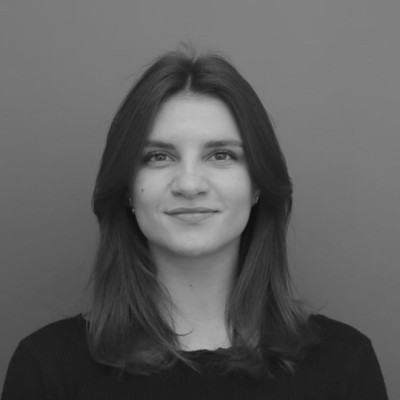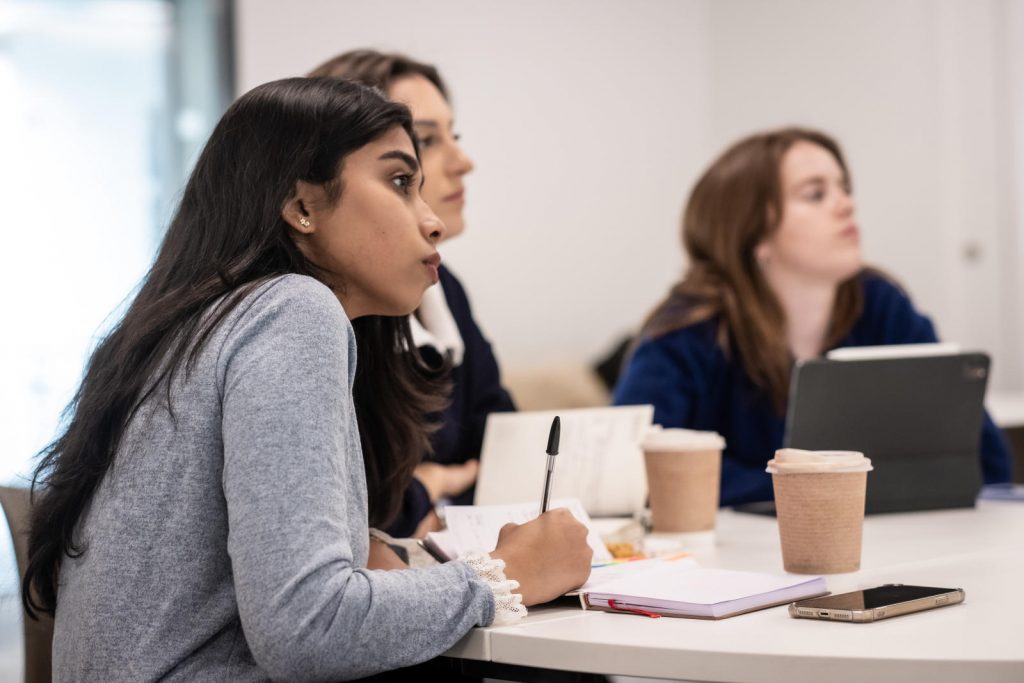“Peace Is More Than the Absence of War”: A Look into Feminist Peace Work with Dr Sophia Close

Reflections from an Inside the Profession Event at the Institute for Diplomacy and International Affairs, by Anna Ligęzowska
As part of our Peace and Conflict Transformation module taught by Dr. Tatevik Mnatsakanyan and offered through the MSc Security, Peacebuilding, and Diplomacy programme at the Institute for Diplomacy and International Affairs (IDIA) we had the privilege of participating in a powerful and thought-provoking conversation with Dr. Sophia Close.
Dr Close represents the UK section of the Women’s International League for Peace and Freedom (WILPF), one of the world’s oldest and most active feminist peace organisations. She brings over 20 years of experience in policy, research, and programming, having worked with the United Nations, governments, and NGOs. Her work focuses on gender-transformative peacebuilding, inclusive mediation, governance, and Indigenous self-determination. In addition to serving as WILPF UK’s Treasurer and Board Director, she also works as an independent consultant.
This talk was part of IDIA’s Inside the Profession series, which connects students with seasoned experts in peacebuilding and diplomacy. These sessions not only explore real-world peace and security issues but also offer valuable insights into building a career in the field.

WILPF: A legacy of feminist peace activism
WILPF was founded in 1915, during the First World War, by women’s rights and peace activists—including Nobel Peace Prize laureate Jane Addams. From the beginning, WILPF has stood by a simple but powerful idea: “Peace is not the absence of war, but the presence of justice.” For them, peace is inseparable from social justice and women’s rights.
Today, WILPF continues to campaign against militarism, nuclear weapons, and fascism, while promoting peace through a feminist lens. The organisation holds consultative status at the United Nations and engages with disarmament policy through initiatives like Reaching Critical Will.
The gendered nature of conflict
In preparation for Dr Close’s visit, we attended a lecture by Dr Mnatsakanyan on Gender and Conflict Transformation. We explored how patriarchal structures not only create inequality but also sustain and legitimise violence. Although the UN only formally recognised the gender dimensions of conflict in 2000 with Security Council Resolution 1325, WILPF had been advocating for gender inclusion in peacebuilding processes decades earlier. In fact, it was the first women’s peace organisation to gain permanent consultative status at the UN.
Research now clearly shows that peace processes are more likely to succeed—and lead to longer-lasting outcomes—when women are meaningfully involved. Yet, women still face systemic exclusion and structural violence during and after conflict. WILPF tackles this on multiple levels: by influencing global policy, and by supporting grassroots women peacebuilders in conflict-affected areas.
WILPF’s approach is grounded in five core principles:
- Promoting peaceful conflict resolution
- Opposing militarism and war
- Advancing women’s rights and gender equality
- Challenging the root causes of violence, including patriarchy, capitalism, and racism
- Supporting democratic participation in peace processes.
The “Local Turn” in Peacebuilding
Throughout the Peace and Conflict Transformation module, we also examined the “local turn” in peacebuilding—the idea that peace must be built from the ground up, not just declared by elites or outsiders. This perspective values local voices, lived experiences, and community-driven efforts. WILPF strongly aligns with this approach, actively supporting grassroots women peacebuilders and ensuring their perspectives shape peace processes.
Learning from a Leader
Dr Close’s visit left a lasting impact. Her deep expertise, combined with her candid reflections on current global challenges and their impact on women and peace work, gave us a clearer picture of what feminist peacebuilding looks like in practice. She also generously shared career advice—practical, honest, and inspiring—for those of us interested in working in peace and diplomacy.
The session sparked thoughtful discussion and a wide range of questions, making it one of the most engaging moments of our module.
On behalf of everyone in the Peace and Conflict Transformation course, I’d like to extend our sincere thanks to Dr Sophia Close for her time and for sharing her invaluable experience with us.
Written by Anna Ligęzowska
Loughborough University London
Blogging everything that’s happening at Loughborough University London